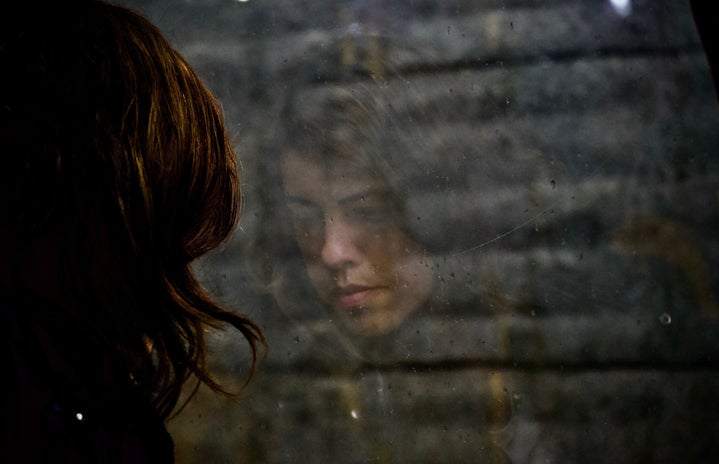So it’s February, and for most of us, our grand notions of New Year’s resolutions have come and gone by now. Rather than looking forward to what 2021 has to offer us, I’ve spent the first few weeks of this year reflecting on some of the lasting effects of a year spent more or less indoors might have on the maturation and social development of my generation, specifically the portion that is either currently in or entering their 20s. Now I won’t lie, this is probably not going to be an especially uplifting read, but if you’re like me and you’re looking for someone to speak candidly about the state of affairs, then this is exactly that. At the risk of seeming out of touch, I am well aware that the issues of social isolation might be very insignificant compared to the intense loss and stress that has been experienced by many over the past year. It is only my intention to try to put into words what I and many of my peers are likely feeling during this time.
For many in this age bracket, we were either just experiencing our first taste of independence or have been acclimatized to living by ourselves and away from home for a couple of years, when the pandemic hit. Many young people, including myself, were forced to move back home during the pandemic to save money and stay safe. This is a big adjustment and what seems like a step backwards in a way, a pause in the natural progression of a young person’s life. One minute you are living on your own, managing your schedule and responsibilities and the next minute your mom is calling you from upstairs to put your dishes away like you’re 16 all over again. Like no time has passed whatsoever, like the past few months or years of your life never happened. While for many adjusting to a new living environment, this may be struggling, but this is not the only symptom of the pandemic affecting young people.
In saying goodbye to your independence, you have likely also said goodbye to many acquaintances and casual friends. Keeping in touch with many people has become somewhat futile. Even if the current lockdown measures would allow for socializing, you probably aren’t within practical distance to see each other. The weather gets colder and that limits social activities and unfortunately, Facetime calls can only help so much. It’s difficult to have a stimulating conversation when, these days, the most exciting thing there might be to talk about is the newest Netflix show you’re binging or how you rearrange your bedroom furniture. I often find the conversations with my friends over the phone are cut short by one of us, out of fear of dragging on about our worries and complaints about the current situation. As much as one might need to, the last thing that anyone wants to do is burden their friends with their struggles and bring them down in the process. The friendships that have endured these unfavourable circumstances have somewhat stagnated. A relationship or friendship is like a person, it needs new shared experiences to grow and flourish. At a time like this, new experiences and activities are hard to come by.
George Lewis is a professor of Neurobiology of Social Interaction at Indiana State University. When asked about quarantine and social restrictions and their effects on young people, he explained that socialization is especially important at this development stage of a young person’s life. Without the ability to foster an outer circle of peers and a support system, the nervous system starts to suffer. Much of their identity, self-fulfillment and security for young people is wrapped up in their broader social circles and communities.
Reading what Professor Lewis said about the impact on your nervous system stuck with me. Just recently, I had an experience where I found myself in a building speaking to people that I hadn’t seen in a year and completely out of nowhere, I found myself having to hold my hands together to stop them from shaking, take long breaths to try and slow my pounding heart and stay seated to stop my legs from feeling like they might give out in front of me. I am not someone who experiences anxiety and I wouldn’t say I’ve ever experienced a true panic attack, so at that moment the feeling of instability and physical and emotional fragility, under seemingly normal circumstances, was very foreign to me.
After a brief pause and a cup of tea, I was able to stand without wobbling and speak without finding myself out of breath. I believe what had happened that day was that after a long time in isolation (in a very controlled environment), when I was in a familiar but long since been place, speaking to different people after many months, my nervous system was completely overwhelmed with the new stimulus and simply couldn’t cope.
You never really know how many papercuts you have on your fingers until you get vinegar splashed on your hands.
What I’ve realized is that in all this time spent in and out of quarantine this past year, there have been a lot of proverbial cuts that were left untreated. Only when I was removed from the safe, familiar and controlled environment that I was used to, did it become obvious how rusty my social and soft skills had become, how unstimulating and stale my current routine was and how completely unprepared I was to do something that before March of 2020, would have been an entirely mundane and thoughtless activity. Interpersonal and social skills are like a muscle and I think it’s fair to say that over the last year, we’ve all become a least a little socially flabby. That’s why it’s all the more important to take the little opportunities you have to get out of your bubble and newfound comfort zone, whether that be doing things as simple as having a casual conversation with the employee checking you out at the grocery store or taking a long drive and looking at something different. It’s not full-proof, but all of these little things will help keep your social skills and nervous systems prepared for when new experiences and encounters do occur.
With life interrupted for many people and all the lifestyle changes that have occurred, I wonder how this will impact our young people in years to come. Might there be some premature maturation as a result of a year or more spent semi-isolated from peers and normal social settings? Are young people growing up and growing out of their old interests due to circumstance? Whether that be social events or activities, people or some travel, it feels like we’ve skipped over time in a crucial stage in our lives. Or maybe we’re not skipping this period of our lives just delaying it, putting it off. Our timeline has just been pushed and we’re now all out of sync. I know I’m personally not in any rush to grow up after this year we’ve had. I now feel like I have lost time to make up for when this is all over and the lockdowns finally come to an end.
With all this disruption, all we can really do is try to adapt and remember that this is temporary. This, like everything else, will eventually pass and for the time being, we must try to stay on top of our mental health as cumbersome as it may feel sometimes, at least that’s what I’m telling myself anyway.



